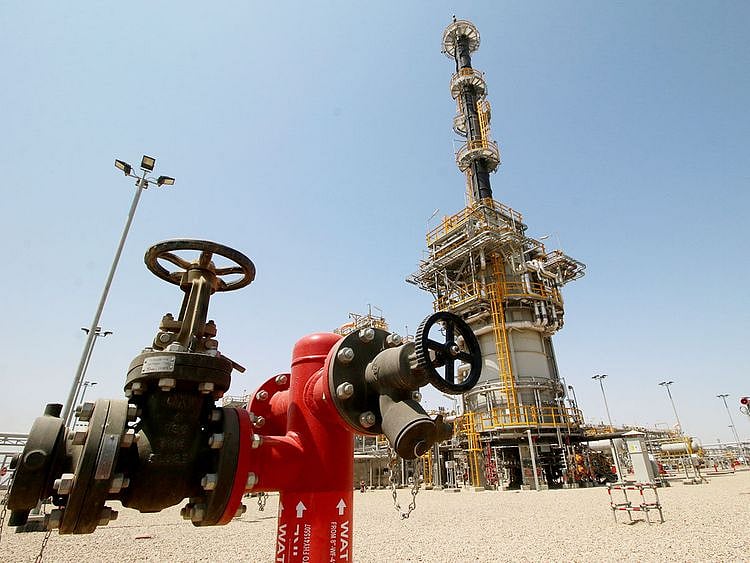WGES: Invest in renewables, but don’t neglect oil and gas
Ditching fossil fuel in an immediate rush to renewables is not on

Dubai: Crisis such as the war in Ukraine and the pandemic have shown that energy security trumps energy transition, and it’s critical that this transition happens smoothly before another crisis knocks on our doors, an expert panel at the World Green Economy Summit said on Wednesday.
However, money is not flowing into renewable projects at the speed it should, and more investment is still needed for producing fossil fuels to ensure that this transition happens as smoothly as possible.
“It’s a transition, not an overnight shift. The world will need a healthy oil and gas capacity while it transitions to renewable energy,” said Khalid bin Ali Al Ruwaigh, CEO, APICORP.
“Today, 80 per cent of the global energy is reliant on fossil fuels. Now, changing this to 80 per cent reliance on renewable will be a complex transition.”
Need for speed
While the transition may be complex, it needs to be quick, stressed Frederic Claux, MD, Thermal & Supply AMEA & Country Director GCC & Pakistan, Engie, who pointed out that climate disasters such as the floods in Pakistan and melting glaciers in Greenland have highlighted the scale of the problem.
Addressing a session titled “Imagining a world transformed by net zero”, Claux said renewable energy will need to make up a significantly higher percentage of our energy mix, and while this won’t happen overnight, it must happen at a speed that doesn’t aggravate the climate crises.
Green prospects
Paddy Padmanathan, Vice Chairman & CEO, ACWA Power, said there was little doubt that by 2050 more than 50 per cent of the energy that we consume will be electric, and virtually all of that electricity will come from renewable sources.
“20-25 per cent energy will come from green hydrogen,” he added, highlighting that generation cost, too, has come down significantly.
“For those of us who have electricity, 22-24 cents per KWH is the cost we pay on average globally. With renewable energy, that could come down to 7.3 cents per KWH for electricity consumption throughout the day. The 7.3 cents will be fixed for 25 years. Sun and wind energy will remain. But can we say that about oil? Who knows where oil will be 25 years from now?”
An ideal transition
Al Ruwaigh highlighted that an ideal transition from fossil fuels to renewable energy will need to ensure energy security and see to it that there’s no interruption in economic growth.
However, the green projects need to be viable.
“The challenge is that find the right opportunity. Today a lot of money is chasing such projects, and this leads to value distortions. It’s very important to analyse in detail the projects that are not only viable but also long lasting.”
But until then, oil and gas capacity needs to be maintained, he added.
“MENA region is embracing a dual path of energy transition – expanding renewables and boosting oil and gas capacity. Oil will play a significant role in the next few decades, and it needs to keep attracting investment even as funds are moved towards renewable projects.”
The governments in the regions are already on the right track, Claux pointed out.
“This region’s leadership is very clear that money coming from oil and gas has to be invested into renewable while ensuring fossil fuels are not disrupted.”
Sign up for the Daily Briefing
Get the latest news and updates straight to your inbox
Network Links
GN StoreDownload our app
© Al Nisr Publishing LLC 2025. All rights reserved.